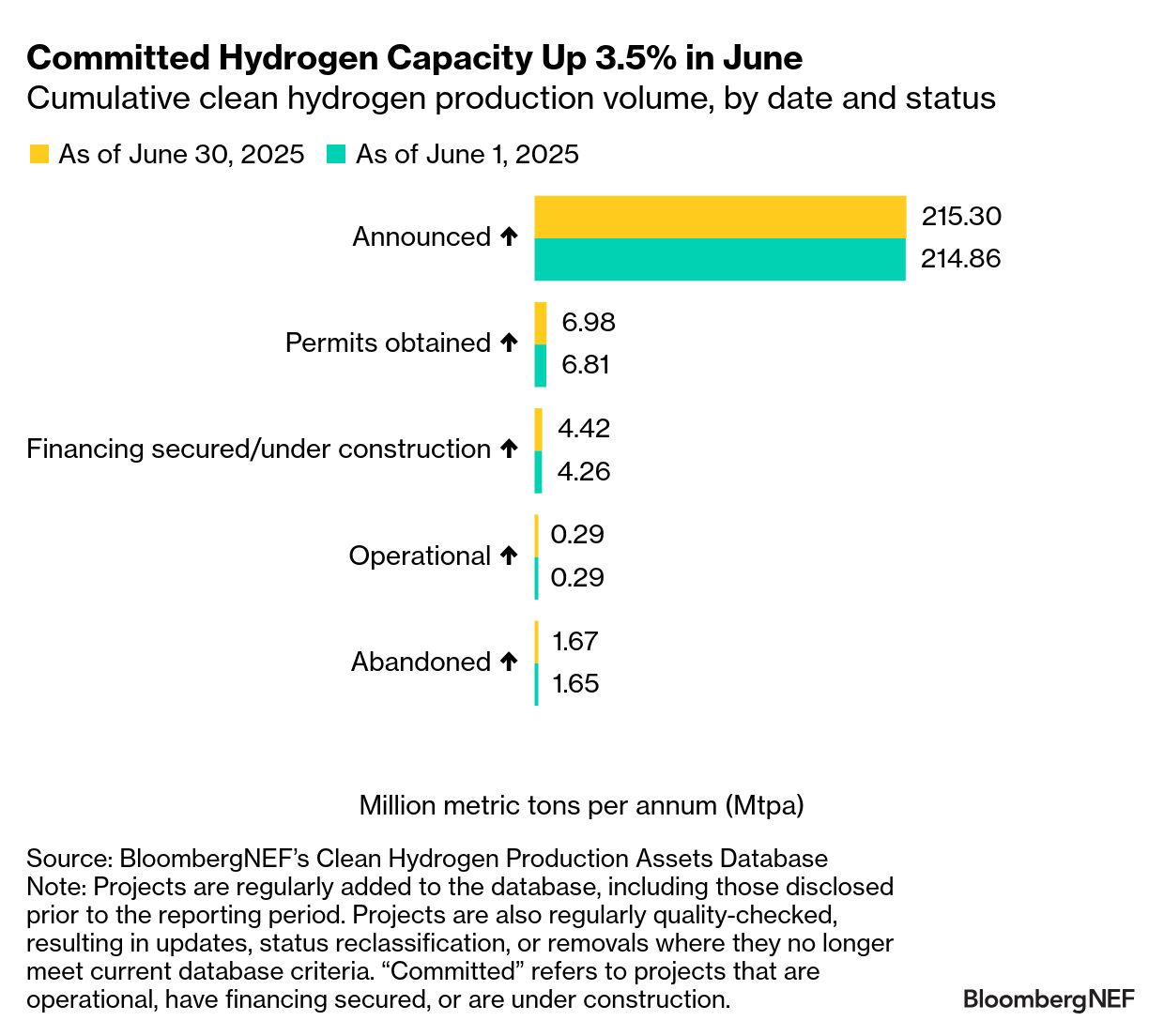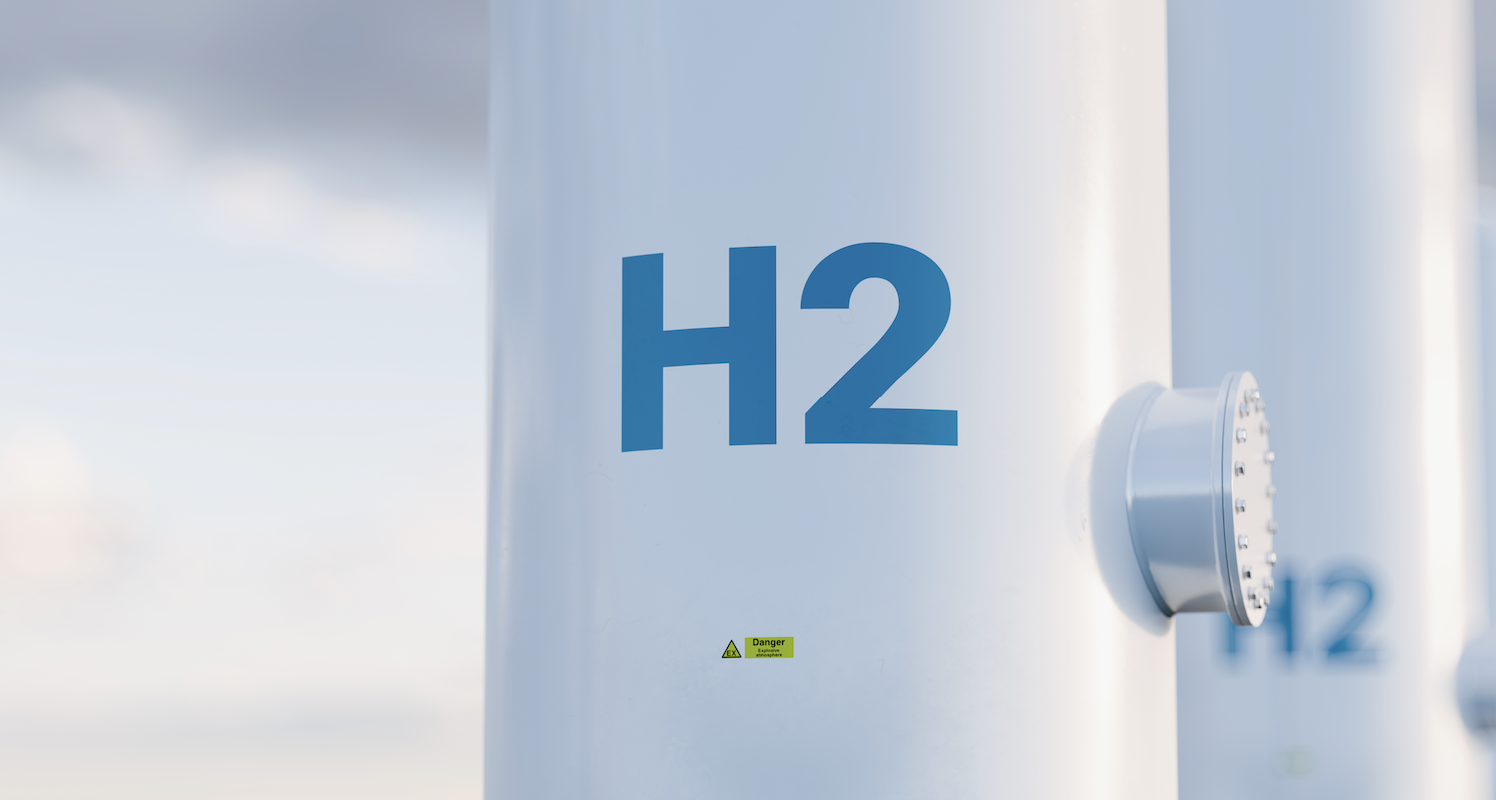Key Takeaways
- The global clean hydrogen ramp-up lacks momentum.
- As of June 2025, only 0.29 million tons of clean hydrogen can be produced per year, reports BNEF. This corresponds to just 0.3% of current (fossil) hydrogen demand.
Main Points
- Without green hydrogen, many decarbonisation projects are facing collapse: this applies to steel and chemicals as well as oil refineries and aviation (e-SAF).
- in addition, some players in the truck and car sectors are pinning their hopes on e-fuels (made from green H2 plus CO2) to halt the trend towards battery-powered vehicles. Particularly audacious lobbies are even promoting H2 as a substitute fuel for natural gas in the home heating sector.
- But after the initial euphoria, some disappointment has set in over the last three years. Costs remain high, as do the technical hurdles. Investors are cancelling projects, and potential customers are hesitant. There is still no plant anywhere in the world that can produce e-fuels for transport on an industrial scale, for example.
- Bloomberg (BNEF) is now pouring even more cold water on the situation with its latest figures on hydrogen capacity:
- Currently, only 0.29 million tonnes of low-carbon hydrogen can be produced worldwide per year.
- By comparison, global consumption of fossil hydrogen (mainly refineries, chemicals) is just under 100 million tonnes per year.
- At present, clean hydrogen can therefore replace a maximum of 0.3% of fossil hydrogen demand. However, this would leave nothing for new applications in transport or industry. Let alone cover the yearly growth of fossil (grey/brown) hydrogen production.
- A further 4.42 million tonnes are under construction or have financing that is currently considered secure. Recent project cancellations in Germany, Spain, Sweden and the USA show that this is still subject to uncertainty. Changes in subsidy policy or the withdrawal of anchor customers can spell the end at any time. As of May 2025, for example, European hydrogen customers committed to offtake agreements of only 0.4 million tonnes, according to BNEF.

Source: Bloomberg/BNEF
Sources
- Bloomberg/BNEF ($)
- Hydrogeninsight ($)
- Image License: Shutterstock 1628418715
Your Comment
- Please use our contact form
